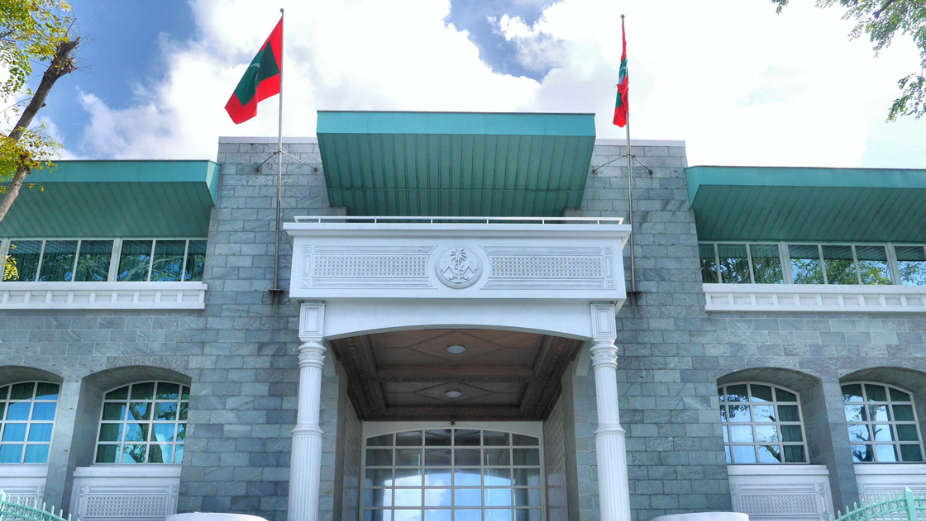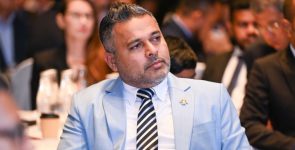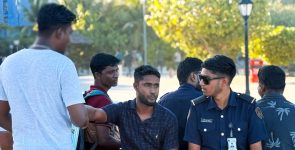The Government of the Maldives has reiterated assurance that it will take no step that might harm or obstruct the freedom of the press provided in the Constitution of the Maldives. A press release was issued by the President’s Office following concerns over the ratification of the amendments to the Evidence Act.
The government notes that, Article 28 of the Constitution of the Republic of Maldives affords every individual the right to freedom of the press, including the right to be free from compulsion to disclose the source of any information that is espoused, disseminated, or published by that person. This right, however, can be subject to reasonable limits prescribed by the law, which is not contrary to the Constitution. Any limitations have to be demonstrably justified in a free and democratic society as per Article 16(a) of the Constitution.
The right to be free from compulsion to disclose the source of information has been limited in free and democratic societies to balance the purpose and privileges of the right, with the purpose and importance of limiting the right.
As such, there are jurisdictions which allow for the court to order disclosure of the identity of the informant or enable that identity to be ascertained, if the public interest in the disclosure of the identity of the informant outweighs any likely adverse effects of disclosure on the informant or any other person. This also includes the public interest in relation to how facts and opinions are communicated to the public and the authenticity of the source of such facts.
Furthermore, while there is a need to protect journalists’ sources, there are jurisdictions where exceptions to this presumption are allowed, where disclosure of the information is deemed necessary. These include matters where interests of justice, of national security and of preventing disorder or a crime take precedence.
The government also added that international human rights law also provides for limitation of rights, subject to tests of necessity in a democratic society and proportionality to the legitimate aims of the rights.
The International Covenant on Civil and Political Rights (1966), to which Maldives has been a party to since 19th September 2006, protects the right to freedom of expression, which includes freedom to seek, receive and impart information and ideas of all kinds, regardless of frontiers, either orally, in writing or in print, in the form of art, or through any other media of his choice. However, the Covenant recognizes that the exercise of this right must carry with it special duties and responsibilities. As per Article 19(3) of ICCPR, the exercise of these rights may be subject to certain restrictions, which shall be provided by law and in cases where it is necessary to protect the rights or reputations of others, or for the protection of national security or of public order (ordre public) or of public health or morals.
The European Convention on Human Rights (1950) adheres to the right on freedom of expression. However, the said right can be limited by conditions, restrictions or penalties prescribed by law and depending on the degree of necessity in a democratic society. It aids in prioritizing the interests of national security, territorial integrity or public safety, for the prevention of disorder or crime, for the protection of health or morals, for the protection of the reputation or rights of others, for preventing the disclosure of information received in confidence, or for maintaining the authority and impartiality of the judiciary.
Also noting that it has taken 40 years to amend and ratify the Evidence Act (11/2022), the government states that extensive consultative process was carried out by the Judiciary Committee within the Parliament to guarantee all relevant parties contributed to compiling this Bill.
Section 136 of Law Number 11/2022 (Evidence Act), prohibits any compulsion of disclosure upon the journalist or the media agency, where the journalist had acquired the information on the basis of a promise or guarantee of confidentiality, unless the source consents to such a disclosure.
The law sets forth two exceptions to this general rule; instances where the information presented by the journalist relates to acts of terrorism, and where the information relates to offences relating to national security. Even in the instance where the information may fall within the exceptions mentioned above, the law provides that court ordered source disclosure can only be allowed in certain circumstances and only where the factors stated in Section 136(b) are satisfied to the civil burden of proof. In that regard, Section 136(b) of the Evidence Act provides a comprehensive list of factors for the judge to consider in allowing disclosure of the source. Those factors are:
1. Circumstances where an act of terrorism or an offence relating to national security has been committed, is being committed or will be committed (if not for the intervention);
2. Circumstance poses an immediate threat to life, body or property;
3. Public interest in disclosing the source prevails over interest in non-disclosure of the source by the journalist;
4. Circumstances present a high possibility of a miscarriage of justice, whereby the suspect or defendant gets an undeserved penalty or is unable to defend their case, on the account of the journalist not disclosing the source;
5. Knowledge of the journalist’s source is integral to the case and has a direct connection to the case;
6. The source has not been discovered after reasonably attempting to discover it through any other means not involving the journalist or the media agency where the journalist works;
7. Information presented by the journalist which has been obtained from the source, is such information which is known to have no basis;
8. Request for disclosure was not intended to infringe upon or harm journalism.
Therefore, the Evidence Act mandates courts to deliberate upon all the aforementioned factors prior to issuing an order that requires a journalist to disclose the source. These safeguards and clear statement of judicial considerations were embedded to law with the specific intention of achieving a balance between the prevention of disorder or crime relating to terrorism and national security, and the right to unhindered journalism. Journalists have the right to appeal to a higher court (High Court/ Supreme Court) for further reviewing of the ruling.
On a final note, the government stated that it will ensure the protection of the rights of journalists enshrined in Articles 27, 28 and 29 of the Constitution, and reiterates its assurance that it will take no step that might harm or obstruct the freedom of the press. As such, the government will always do everything in its power, including taking whatever measures are necessary at the time, to foster a culture of press freedom in the country.”



















